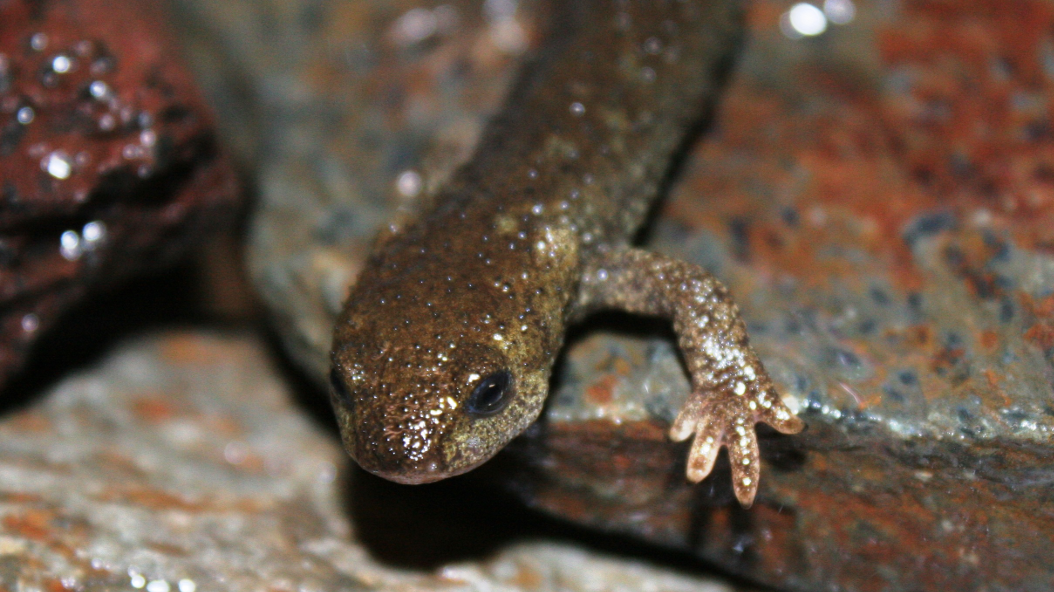The Conservation project of the Montseny brook newt (Calotriton arnoldi), coordinated by the Provincial Government of Barcelona, with the support of the Zoo, the Regional Government of Catalonia, the Provincial Government of Girona and Forestal Catalana, has been selected as LIFE Project by the European Union. The LIFE Programme is the financial instrument of the European Union that is focused on the environment. This project will enable to improve, during the next years, the conservation situation of this critically endangered species and its riverside habitat.
Some of the following actions, among others, will be aimed on reducing the currently identified threats for the Montseny brook newt: to improve the condition of water in the streams of the Montseny Natural Park; to expand its distribution area by reintroducing of specimens bred in captivity; to preserve the genetic variability of the species and to raise awareness on the importance of the species.
This project offers the Zoo an important economic fund of more than 400,000 euros, from European funds, which will be assigned to improve the breeding facilities of this species and to create an educational room, aimed to raise awareness on the importance of brook newts and the fauna in Montseny’s mountain streams.
The implementation of this programme represents a boost to the work started 4 years ago, with the newt’s breeding facility, which has proven to be so positive for the conservation of this native species.
Status of the species
On 2005 a new amphibian species was discovered in the Montseny mountains, the Montseny brook newt (Calotriton arnoldi), which is endemic to the Park, as well as the most endangered amphibian of western Europe. A conservation programme was started at once by the Provincial Government of Barcelona and the Regional Government of Catalonia, to contribute to the survival of the species. On 2007 a test programme on reproduction in captivity was started in the Wild Fauna Recovery Centre of Torreferrusa, which the Zoo of Barcelona joined four years ago, to attempt to improve the future status and conditions of the species in case of a critical situation.

During the last years, the population of endemic newts has decreased 15% and the species is currently listed as critically endangered on the IUCN’s red list. The species is also protected by both Spanish and Catalan laws. The survival of this species is closely linked to the preservation of aquatic environments, but also to the vast forests surrounding them.



